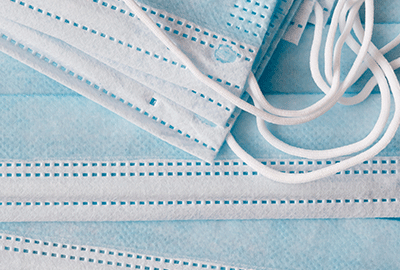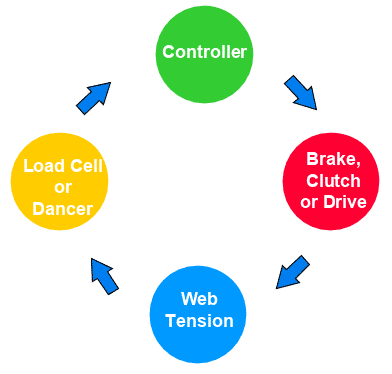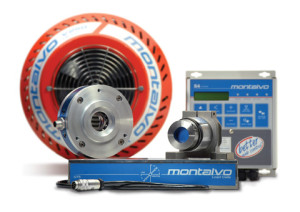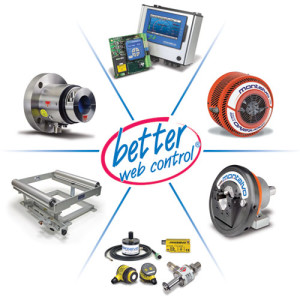The year 2020 brought with it many events that no one could have foreseen. COVID 19 has affected every industry and changed the lives of millions of people around the world. This unique phenomenon caused a significant surge in the demand for masks, PPE, and other Nonwoven’s products. The exponential growth has strained manufactures to keep up with the rapidly growing demand as they seek productivity improvements to their machines, develop expanded, or new capabilities from their existing equipment.
As more and more manufacturers have rushed to retrofit their equipment, lack of high-quality mask and Nonwovens Tension Control systems have led to higher scrap rates, steeper and costlier learning curves, and loss in productivity and profits. Since most medical, surgical, and N95 respirator masks, along with other critical medical supplies and PPE are made from Non-woven materials, the need for higher quality and higher quantity of product has put the spotlight on the requirement for quality Tension Control systems.
Non-woven is a fabric made from a blend of natural and synthetic materials, fused together by various techniques. Melt-blown Non-woven fabric, used mostly for face mask production and PPE, is made from resin pellets that are melted into fiber and then blown against a rotating surface; thus, creating a single-step fabric. Once the fabric is created it needs to be fused together. That process can be made in one of the four ways, attached by resin, heat, pressed by thousands of needles, or interlocked by high-velocity water jets.
The production of face masks requires two or three layers of Non-woven fabric. The inner layer for comfort, a middle layer for filtration, and the third layer for protection. In addition to that, every mask needs a nose- bridge, and ear loops. The three Non-woven materials are fed into an automated machine that folds the fabric, laminates the layers together, cuts the fabric into the required length, and adds the ear loops and nose- bridge. For maximum protection, each mask has to have all three layers, and the cut needs to be precise. For such accuracy, the web needs to have the right tension throughout the production line.
The importance of tension control is extremely high when the manufacturing plants are producing millions of masks and PPE in a single day. Quality and consistency are the results that every manufacture is demanding, every single time. Montalvo Tension Control Systems can maximize the manufactures’ end-product quality, increasing productivity and product consistency, while solving any Tension Control-related problems they may have.

Why does Tension Control matter? Tension Control is the process of maintaining a predetermined or set amount of stress or strain on a given material between two points while maintaining uniformity and consistency manners without any loss to material quality or the desired properties. Moreover, when two or more webs come together, each web may have different characteristics and tension requirements. In order to ensure a high-quality lamination process with minimal to no defects, each roll of material should have its own Tension Control system to maintain high quality end products with maximum throughput.
For precise Tension Control, a closed-loop or open-loop system is vital. Closed-loop systems measure, monitor, and control the process through feedback to compare the actual tension with the desired tension. In doing so, this greatly reduces error and brings about the desired output or response. In a Tension Control closed-loop system there are three primary elements: the tension measurement device, the Controller, and the torque device (Brake, Clutch, or drive)
Montalvo offers a wide range of Tension Controllers from PLC Controllers to Standalone Dedicated Control units. The Controller receives direct material measurement feedback from the Load Cell or the Dancer arm. As tension changes, it produces an electrical signal that the Controller interprets in relation to set tension. The Controller then regulates the torque of the torque output device (tension brakes, clutches, or drives) to maintain the desired setpoint. In addition, as the roll mass changes, the required torque needs to be adjusted and managed via the Controller. This ensures that throughout your entire process your tension is consistent, uniform, and precise.

Montalvo manufactures a wide range of industry-leading Load Cell systems with multiple mounting configurations, and multiple load ratings, sensitive enough to detect even the slightest changes in tension, minimizing waste, and maximizing the amount of high-quality end product. The Load Cells measure the micro-deflections forces applied by the material as it moves on the idler roller caused by tension tightening or loosening as the material travels through the process. This measurement is in the form of an electrical signal (often millivolts) that is sent to the Controller for interpretation and utilization in regulating torque to maintain set tension. Montalvo’s Load Cells are easy to set up, run, operate and can be integrated into your existing platform if required.
In conjunction with Montalvo’s Controllers and Load Cells, the third and vital component is the Brakes. Montalvo Tension Brakes are industry-leading due to innovative cooling and smooth, linear torque delivery. Edwin J. Montalvo Sr. developed the original Air-Cooled, Air-Actuated brake for the converting industry and Montalvo has continued to improve the design and performance of these air-cooled tension brakes. The Air- Cooled, dual disc, multiple-range brakes, and clutches revolutionized the Continuous Web-fed Converting Industry and helped usher in a new era in the Tension Control Industry. Today, Montalvo offers two major types of brakes, the Pneumatic Brakes and the Magnetic Particle Brakes. Since the brake has to match the materials, the weight of the roll, and the tension level, Montalvo designed six different brake models. The brakes range from V Series Tension Brakes, CS Series Tension Brakes, to Magnetic Particle Brakes – the MP Series and more. Therefore, providing a tension capability of less than 0.4 in-lb. to up to 51,120 in-lb. Ensuring Montalvo has the right brake for every application. Montalvo Tension Control gives you greater precision, consistency, and quality.

Montalvo’s Automated Tension Control Systems feature the ” Set it and Forget it ” technology that makes set-up and operation easier, and minimizes operator interaction. Operators simply need to pull up the process, put the Controller in “Auto” and then start the production run.
With Montalvo Controllers, Load Cells, and Brakes it has never been easier to produce masks and personal protective equipment.


